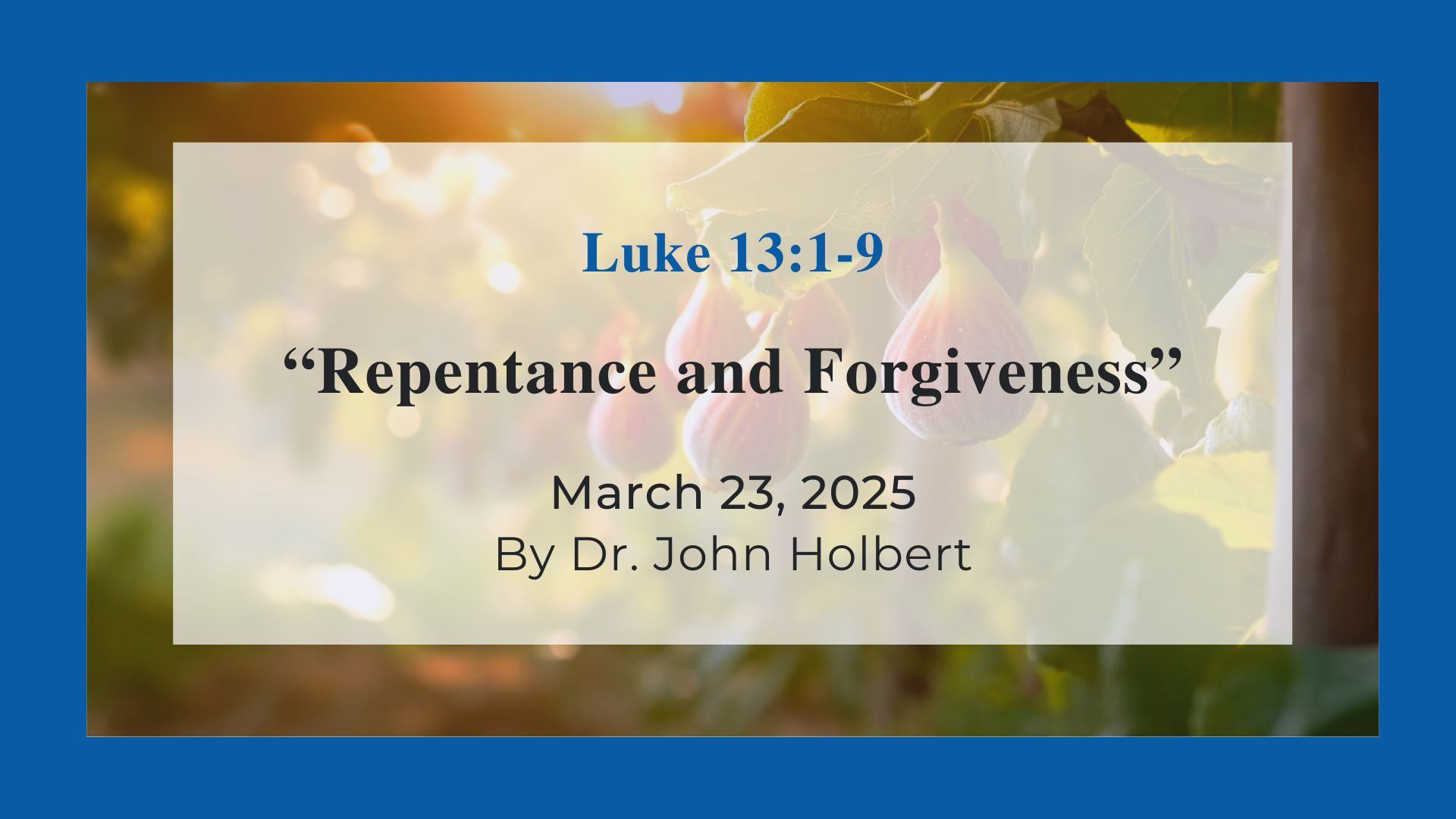Repentance and Forgiveness - Reflections on Luke 13:1-9, Lent 3, Year C
by John C. Holbert on Friday, February 7, 2025

Along with the important theological ideas that Luke has enshrined in this chapter, some of which we will enumerate below, we can also see here quite beautifully the ways that Luke shapes material for his own literary ends. The chapter begins with two stories unique to Luke. Both of these short tales are often used by preachers to reject the still-widespread notion that particularly bad behavior is invariably punished by a vengeful God in especially horrific ways. That notion was regularly rejected in the ancient world (see especially the book of Job), and should in the same way be rejected now.
Luke speaks first of a group of Galileans “whose blood Pilate had mingled with their sacrifices” (Luke 13:1). That is to say, certain Galilean Jews had come to offer sacrifice in the local place of worship, and the terrible procurator of Jerusalem, the odious Pilate, had attacked them, causing blood to flow. This incident is vague enough not to be able to fix any exact history to it, but the reputation of Pontius Pilate is terrible enough to make the scene more than plausible. The Jewish-Roman historian, Josephus, tells many a tale of the monstrous actions of this Roman magistrate, both in his accounts Antiquities and Jewish War, how Pilate regularly resorted to violence when dealing with the restive Jewish population. But Jesus is not here excoriating the actions of Pilate, so much as he is using the event to teach his listeners that if they imagine that those unfortunate Galileans were “worse sinners” than they, and thus deserved the assaults of Pilate, they are very much mistaken. “If you do not repent, you will perish in the same way” (Luke 13:3).
Or what about the 18 victims of the collapse of the tower of Siloam? “Do you think they were more deserving of punishment than all the people of Jerusalem?” (Luke 13:4). Hardly! “I tell you! If you do not repent, you will all perish in the same way” (Luke 13:5). Once again, the event described cannot be fixed historically, though the collapse of towers was probably not a rare occurrence in an ancient city, given the shaky nature of some of the architectural structures. Both stories present dire warnings to those who think they are safe from retribution simply because they have avoided the depredations of Pilate and the falling stones of a tower. No, all must offer a true repentance of they are to find themselves truly safe in God.
And the possibility of God’s safety is made certain by the way Luke uses the famous tale of Jesus and the fig tree. The story is found in a very different guise in Mark 11:12-14 and Matthew 21:18-19. In those two accounts Jesus goes seeking fruit from the fig tree, though it is not the season for figs, and promptly curses the tree, despite that clear fact. Both Mark and Matthew have things in mind for this fig tree that Luke has no relationship to. For Luke, the crucial bit is the reaction of the gardener to Jesus’s demand to cut the tree down, after waiting three years for it to produce figs. “Why waste the space,” says Jesus (Luke 13:7), with no little scorn. But the vinedresser has a completely different outlook. “Master, let it be for a year.I will dig around it and fertilize it. Perhaps it will bear fruit in the coming year. If not, then cut it down” (Luke 13:8-9). In short, be patient, Jesus! Figs may yet come; repentance may yet be seen among the people.
Luke then adds the account of the bent-over woman, who has been unable to stand up straight for 18 years (note Luke’s use of the number 18 again, and repeats the number in Jesus’s reply to the ruler of the synagogue at Luke 13:16). The woman receives healing at the hand of Jesus, despite the very long time of her affliction. Once again, it is never too late to receive healing at the hand of Jesus, and never too late to receive the grace of God after a full repentance. And Luke may have one more lesson to teach. Just as the woman at last “stands up straight and glorifies God,” (Luke 13:13), so we are reminded of the return of the Son of Man (the unique “human one” of God): “when these things begin to happen, stand up straight (the same Greek verb), lift up your heads, for the time of your liberation has come” (Luke 21:28). As Jesus promised in his inaugural sermon in Luke 4, he has come to bring “liberation to the captives.” Luke demonstrates in this chapter 13 one way that liberation will occur.
